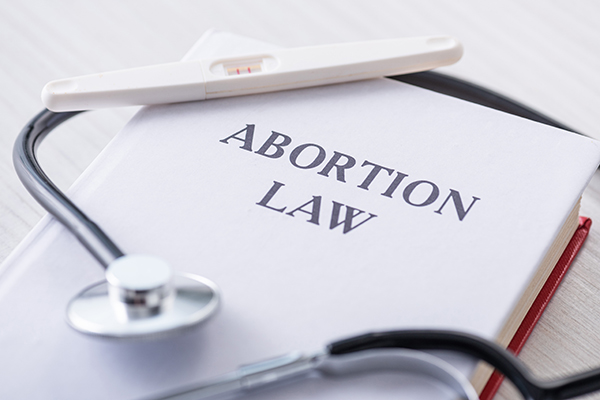REPORT: FDA used flawed studies, bad data to justify allowing abortion pills to be sent through the mail by pharmacists
05/20/2024 / By Laura Harris

A paper published in the journal Issues in Law and Medicine has revealed that the Food and Drug Administration (FDA) used selective data and misleading claims to justify the removal of the requirement that abortion pills be administered in person.
In the past years, the abortion drug mifepristone was only available at specific medical facilities under direct doctor supervision to confirm the pregnancy and its stage, ensure it was not ectopic and prevent coercion and misuse. However, the administration of President Joe Biden made a policy change in December 2021 during the Wuhan coronavirus (COVID-19) pandemic. The Biden administration had stopped enforcing the requirements since April, allowing pharmacists to mail abortion pills to recipients with a prescription.
Then-acting FDA Commissioner Janet Woodcock identified four studies that the FDA reviewed to determine whether the remote distribution of abortion pills would be safe or not. The FDA also cited a low number of adverse event reports related to abortion drugs in 2020. However, abortion drug prescribers have not been required to report non-lethal complications since 2016, leading to potential underreporting. (Related: 19-year-old Canadian girl dies after taking common abortion pill.)
Ingrid Skop, the vice president and Director of Medical Affairs at the pro-life Charlotte Lozier Institute, and her co-authors criticized the quality of the studies the FDA used to justify its decision. The authors argued that the FDA’s decision was based on flawed studies and underreported data.
“Most were small and incomplete (with follow-up data not available on all women) and did not replicate the conditions of use that the FDA approved (because they all included at least some women who received routine pre-abortion testing),” the paper stated.
Moreover, the paper noted that many United States studies are of poor quality due to the private payment for most abortions and the reluctance of women to report complications. There are no federal mandatory reporting requirements for abortion complications, which creates uncertainty about the actual number of complications and deaths following abortions.
Meanwhile, data from Britain, where there is a more comprehensive system for collecting data on abortion complications, suggests significantly higher complication rates.
“When examined thoroughly, the United Kingdom data shows that medical abortion with mifepristone and misoprostol has significantly higher complication rates than the Aiken, et al. study referenced by the FDA suggests, especially when these pills are distributed without standard pre-abortion testing and without medical supervision, AKA ‘pills by post,'” the report said.
Skop and her co-author, Calum Miller from Oxford University, stated that the FDA “must follow the science by considering the highest quality studies examining the safety of abortion drugs, and they must follow the laws regulating their actions,” but fails to do so.
ADF files a lawsuit against the FDA’s approval of abortion pills
In response to the policy change, the Christian legal group Alliance Defending Freedom (ADF) filed a lawsuit on behalf of pro-life doctors and activists. The ADF accused the FDA of overstepping its bounds and disregarding safety concerns when it initially approved mifepristone over two decades ago.
U.S. District Court Judge Matthew Kacsmaryk of the Northern District of Texas initially sided with the plaintiffs and issued a preliminary injunction on April 7, which in turn, suspended the FDA approval of mifepristone.
As expected, the Biden administration swiftly appealed the decision to the Fifth Circuit Court of Appeals in August. However, the panel, comprised of judges appointed by former President Donald Trump, delivered a mixed ruling. The panel blocked the overturning of the FDA’s initial approval of mifepristone, but reinstated restrictions on the drug, including limiting its use after seven weeks of pregnancy and prohibiting mail delivery.
The issue reached the U.S. Supreme Court in December 2023. The highest court in the nation declared its intention to reassess the August ruling. This re-evaluation has the potential to influence not only the FDA’s initial approval of mifepristone in 2000 but also the subsequent extension of the timeframe for its administration from seven to 10 weeks.
Visit Abortions.news for similar stories about abortion laws around the world.
Watch as a new pro-life battle exposes the dangers of chemical abortions under the Biden regime.
This video is from the High Hopes channel at Brighteon.com.
More related stories:
Supreme Court ruling on use of abortion pill could impact November elections.
Sources include:
Submit a correction >>
Tagged Under:
abortifacient drugs, abortion, big government, Big Pharma, corruption, evil, FDA, infanticide, insanity, Mifepristone, misoprostol, pharmaceutical fraud, Prescription drugs, rigged, science deception, science fraud, Twisted, women's health
This article may contain statements that reflect the opinion of the author
RECENT NEWS & ARTICLES
COPYRIGHT © 2017 ABORTIONS.NEWS
All content posted on this site is protected under Free Speech. Abortions.news is not responsible for content written by contributing authors. The information on this site is provided for educational and entertainment purposes only. It is not intended as a substitute for professional advice of any kind. Abortions.news assumes no responsibility for the use or misuse of this material. All trademarks, registered trademarks and service marks mentioned on this site are the property of their respective owners.
















